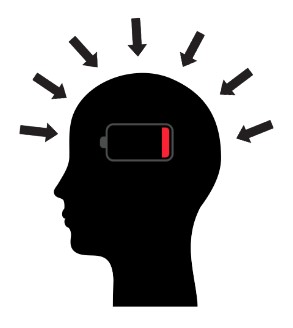What does an Introvert look like?
Introverts tend to be more comfortable spending time alone, gaining energy from situations with low levels of external stimulation. While they are often capable and successful at socialising, it can drain them of energy and they will likely need time alone to recover and recharge afterwards. Similarly, if an introvert does not have the energy to attend a social event they may choose to avoid it rather than suffer through it. This is not through rudeness but rather an understanding that the event will be demanding and will probably leave them drained.

WORKING WITH OTHERS
Introverts are a great team member, if given some space
Introverts generally prefer to work alone. They can enjoy group activities, especially if well organised. However when it comes time to tackle the task they prefer no distractions. You could say silence is the genius zone for the introvert. In group situations, particularly during open discussions, they are typically more of an observer and prefer not to share their opinion unless asked directly. They generally prefer to share ideas in writing rather than be put on the spot, as this allows them to formulate their thoughts without intrusion. An introvert will prefer time to process feedback, generally on their own. Introverts can and will argue if required, they just don’t enjoy it. While group work might not always be comfortable or preferable, introverts can be an excellent team member when given the opportunity to work independently.
DECISION MAKING
Introverts are creative thinkers
Introverts take time to process their thoughts and can be accused of overthinking. This can result in them being in their own head a lot, particularly if there is a problem to solve or a big decision to make. As a result of their longer and less impulsive decision making style they may be accused of missing opportunities or even procrastination but when they have made a decision, it is generally the right one. Introverts are not indecisive; they simply need alone time to process the information and tend to let things evolve.
CONCENTRATION AND FOCUS
Great focus but watch the noise!
When in their desired environment and working alone with little external stimuli introverts can have an unstoppable focus. They are often able to engage in an activity for an extended period of time with few breaks or distractions. This does not mean that distractions don’t impact on their work; noisy or busy environments can overwhelm them quickly, making work all but impossible. Introverts might prefer to tackle one task at a time, disliking the idea of multi-tasking and they tend to prefer to start one task and finish it before moving on.
COMMUNICATING
Introverts are listeners 1st talkers 2nd
In a discussion or social environment introverts might prefer to sit back, observe the action and take everything in. As a result they can sometimes be accused of being a ‘wall flower’, shy or antisocial. Don’t be fooled and underestimate how engaged they are and how much detail they might absorb in these situations. Not actively engaging can also sometimes be an energy protection strategy. They are playing to their strengths and will often seek an opportunity to discuss their thoughts in a more private and low energy environment. If someone wanted to know what happened or was discussed at a social event, an introvert will likely be able to paint a clear picture.
RECHARGING
External stimulus tends to drain introverts of their energy
Introverts recharge best where there are low levels of external stimuli. They gain energy from spending time alone and are generally comfortable in their own presence. Thinking about a concept/project, listening to music, or reading a book might all sound like great recharging opportunities. As opposed to an extrovert, being alone on the couch for the day will likely find an introvert feeling refreshed and energised. While an introvert may still enjoy socialising, they will generally need time to both prepare for, and recover from a large or noisy event. The busier, louder, and larger the event, the more it drains their energy. It may be fun but they need time to recharge.
SOCIALISING
Friends are great, in small doses
Introverts prefer a small social network and to socialise with those they know well. They might be less likely to approach new people and their social network will typically come from work, family friends and friends of friends who they can create a close bond with. This doesn’t mean they are antisocial and they can be extremely engaging when in small quieter groups; they just don’t tend to jump up and down yelling “look at me!” Whilst their circle of friends might be small, the value they place on them is large and friends they have tend to be close and long-term.
